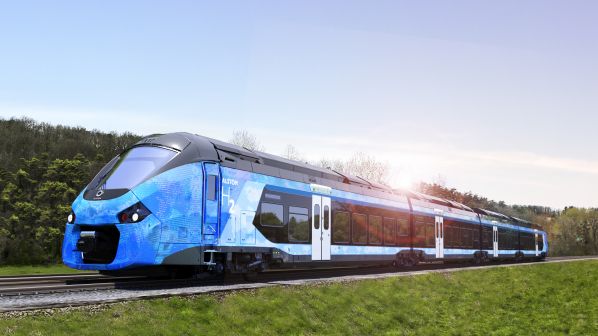At a meeting of the regional operators, TER CEO, Mr Frank Lacroix and SNCF deputy CEO - rail systems and technologies, Mr Pierre Izard, announced the launch of a feasibility study and said they were committed working with the regions to define the specifications of the future use of hydrogen fuel-cell rolling stock on the reigional network.
50% of the TER fleet is currently diesel powered while 20% is bi-model (diesel and electric), but SNCF president, Mr Guillaume Pepy, announced recently the company had set a goal of removing diesel operation completely by 2035.
Last month, Alstom unveiled a concept for a hydrogen fuel cell variant of its Coradia Polyvalent (Régiolis) multiple unit, which the supplier is developing as an alternative to diesel trains for the French regions. The project builds on Alstom’s experience in Germany with the prototype iLint hydrogen train, which entered service in the state of Lower Saxony in September.
While rail accounts for less than 1% of greenhouse gas emissions in France, SNCF says there is still room for improvement. A steering committee has been created to oversee the project, which will identify details such as funding sources and a suitable pilot line for the first hydrogen train.
SNCF says a number of factors will determine where the project will launch, including regional energy policies and the development of infrastructure for the production and distribution of hydrogen. It says this infrastructure could potentially feed other industries, such as heating, and modes of transport such as taxis and buses.
In September, SNCF announced a partnership with Alstom and the French regions of Grand-Est, Nouvelle-Aquitaine, and Occitanie to test a battery-electric regional train from 2020.
“Hydrogen has undeniable advantages for the TER and the regions,” says Lacroix. “It is an alternative to the costly electrification of lines.”

